On the morning of July 2, 2025, at APAG Headquarters in Ha Noi, the Academy of Public Administration and Governance (APAG), in collaboration with the Institute for Policy Studies and Media Development (IPS), held a workshop titled “Development and management of AI: Experiences of the European Union and implications for Viet Nam”. The workshop was conducted in a hybrid format (both in-person and online), attracting the participation of experts, scholars, lecturers, and representatives from domestic and international organizations.
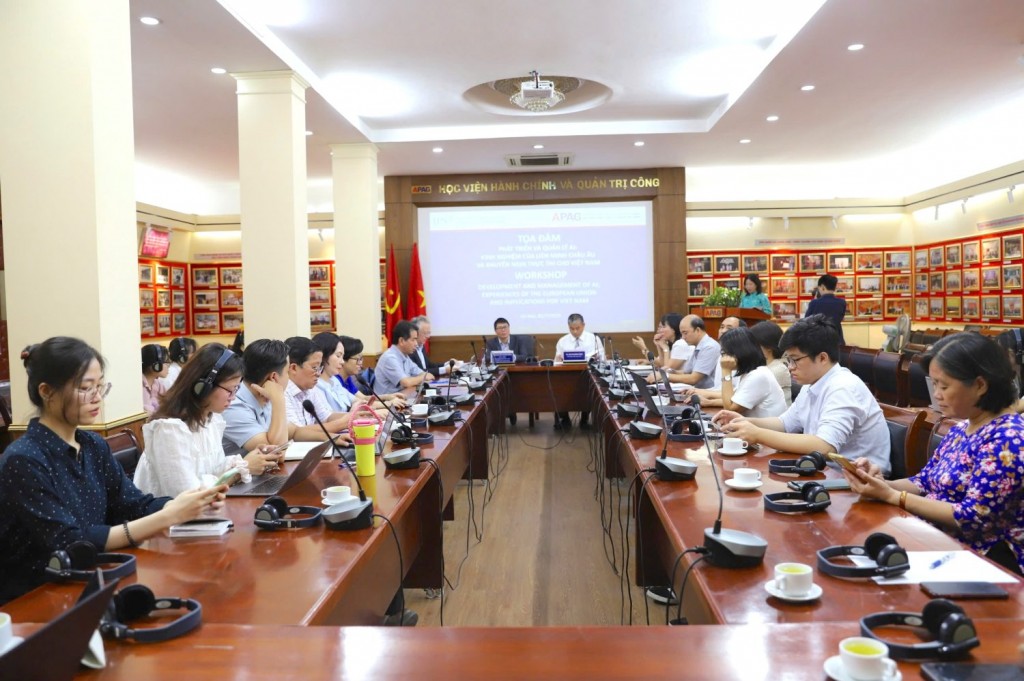
At the workshop.
The workshop was co-chaired by Dr. Bui Phuong Dinh, Vice President of APAG, and Mr. Nguyen Quang Dong, Director of IPS. Participants also included Dr. Nguyen Dang Que, Vice President of APAG; Mr. Nguyen Duc Lam, IPS Policy Advisor; representatives of APAG departments, faculties, and affiliated units. The workshop also featured the keynote speaker Prof. Dr. Martin Ebers, Professor of IT Law at the University of Tartu, Estonia, President of the Robotics & AI Law Society (RAILS), Germany.
In his opening remarks, Dr. Bui Phuong Dinh emphasized that the workshop took place in the context of Viet Nam actively implementing Resolution No. 57-NQ/TW of the Politburo on the development of science, technology, innovation, and national digital transformation. Artificial intelligence (AI) has been identified as a key driver in this process. However, alongside its tremendous potential, AI also poses numerous legal, ethical, and governance challenges, requiring Viet Nam to build an appropriate legal framework, especially by learning from advanced international models.
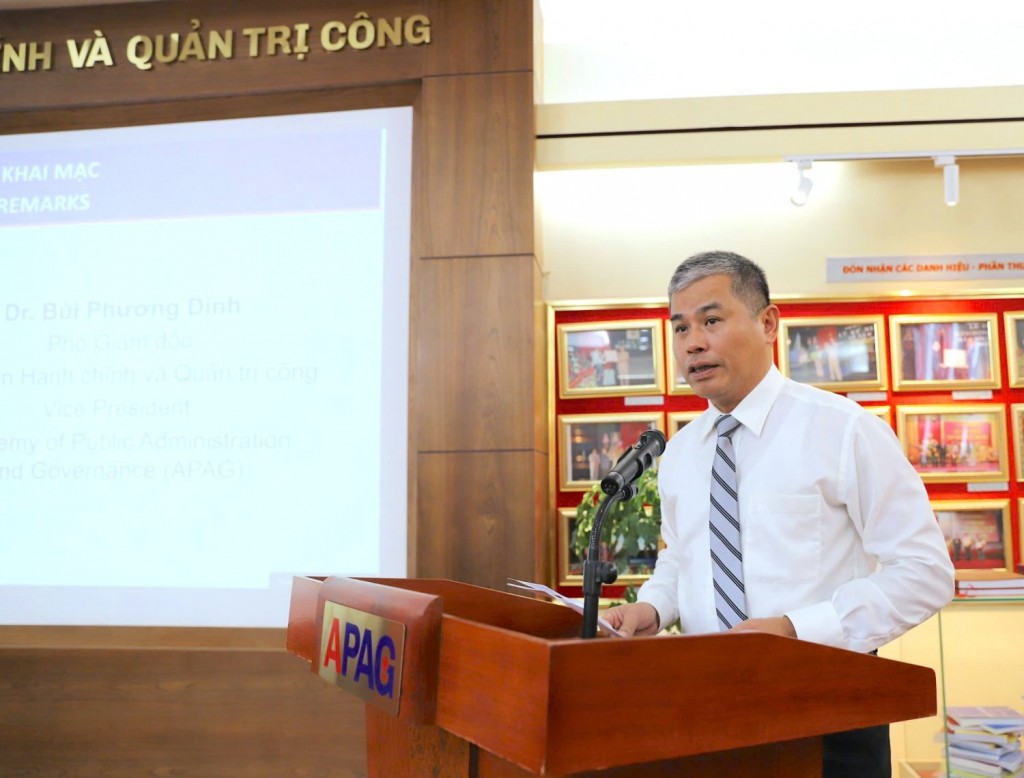
Dr. Bui Phuong Dinh, Vice President of APAG, delivered opening remarks at the workshop.
Dr. Bui Phuong Dinh shared that over the past years, APAG has proactively collaborated with relevant agencies and domestic and international policy research organizations to organize numerous activities such as surveys, workshops, and thematic seminars. These efforts have provided scientific and practical foundations for policy formulation and implementation. Beyond merely connecting stakeholders, APAG has actively played the role of a bridge between theory and practice, and between academic research and policy demands, especially in emerging areas such as digital transformation, digital technology, and artificial intelligence (AI). The research outcomes and policy recommendations from these activities have been and are being used as important references in institution building, legal reform, and the enhancement of state governance capacity across various levels and sectors.
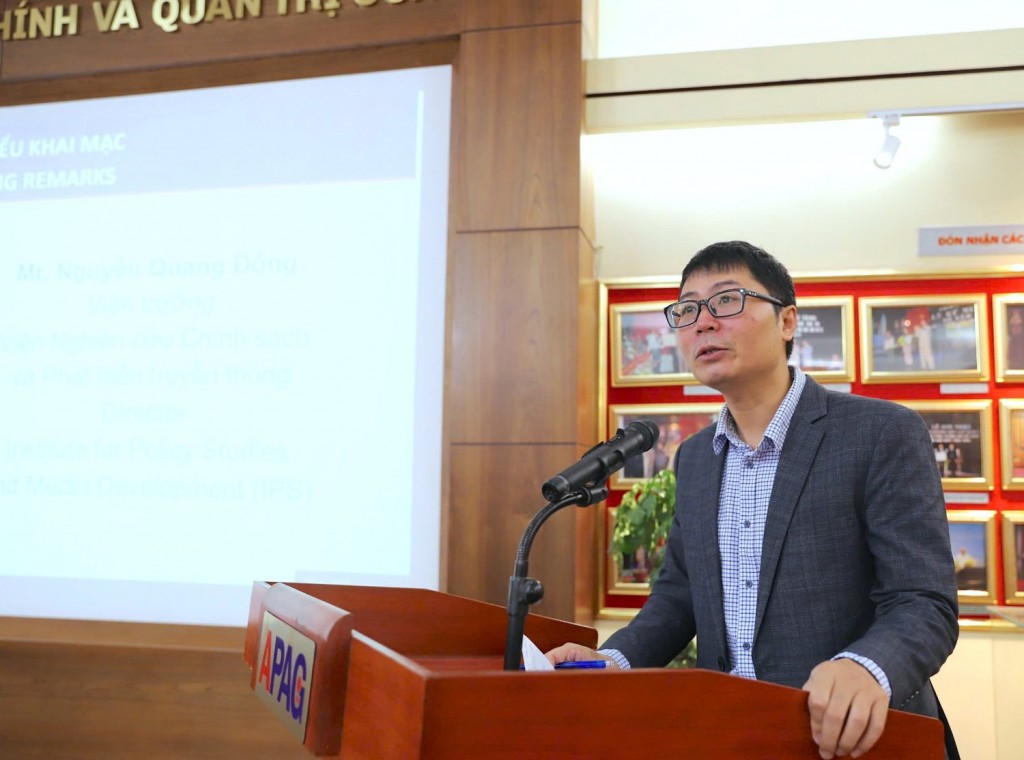
Mr. Nguyen Quang Dong, Director of IPS, delivered welcome remarks.
In his remarks, Mr. Nguyen Quang Dong stated that the workshop was the result of close collaboration between APAG and IPS, aiming to create a multi-dimensional platform for exchange and sharing of international experiences, particularly from the European Union, a pioneer in the development of AI governance frameworks.
He expressed hope that the workshop would effectively connect policymakers, researchers, experts, and lecturers, thereby generating practical and feasible policy recommendations to help improve the legal framework for artificial intelligence in alignment with Viet Nam’s real-world conditions.
The workshop featured two main sessions:
- Session 1, presented by Prof. Dr. Martin Ebers, Professor of IT Law at the University of Tartu (Estonia) President of the Robotics & AI Law Society (RAILS) (Germany), focused on the EU’s risk-based AI governance model, as embodied in the Artificial Intelligence Act (AI Act). His presentation offered a comparative perspective with Viet Nam’s recently passed the Law on Digital Technology Industry (June 2025). He emphasized that the EU approach classifies AI systems based on risk levels (unacceptable risk, high risk, limited risk requiring transparency, and minimal risk) and applies corresponding regulatory requirements to ensure human rights protection, data security, and accountability. He also compared this model with Viet Nam’s new legal framework and provided objective insights into its strengths and key considerations for effective implementation.
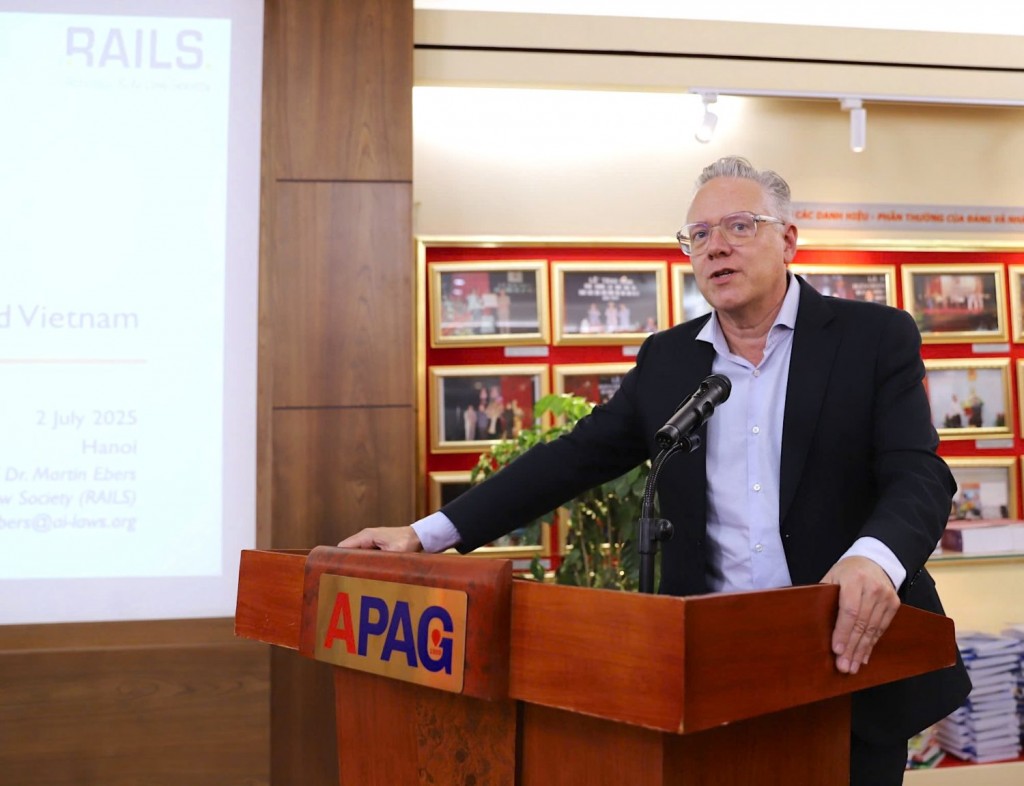
Prof. Dr. Martin Ebers, Professor of IT Law at the University of Tartu, Estonia, President of the Robotics & AI Law Society (RAILS), Germany.
- Session 2 was a policy discussion chaired by Dr. Bui Phuong Dinh and Mr. Nguyen Duc Lam – Policy Advisor at IPS. Participants focused on discussing and addressing a wide range of issues related to the practical implementation of risk-based AI governance regulations in the European Union; current advantages and challenges; the gap between legal provisions and real-world implementation; and the difficulties in developing a responsible AI ecosystem in Viet Nam. The session also featured concrete proposals to ensure the feasibility and effectiveness of Viet Nam’s emerging legal framework on AI. Several notable recommendations were made during the discussion, including: (1)
Developing a legal framework for AI based on a truly risk-based approach; (2) Integrating cost–benefit analysis and real-world evidence into the policy-making process; (3) Avoiding a mechanical replication of the EU model and instead adapting it flexibly to suit Viet Nam’s context; (4) Clearly defining the responsibilities of stakeholders across the AI value chain to ensure effective enforcement.
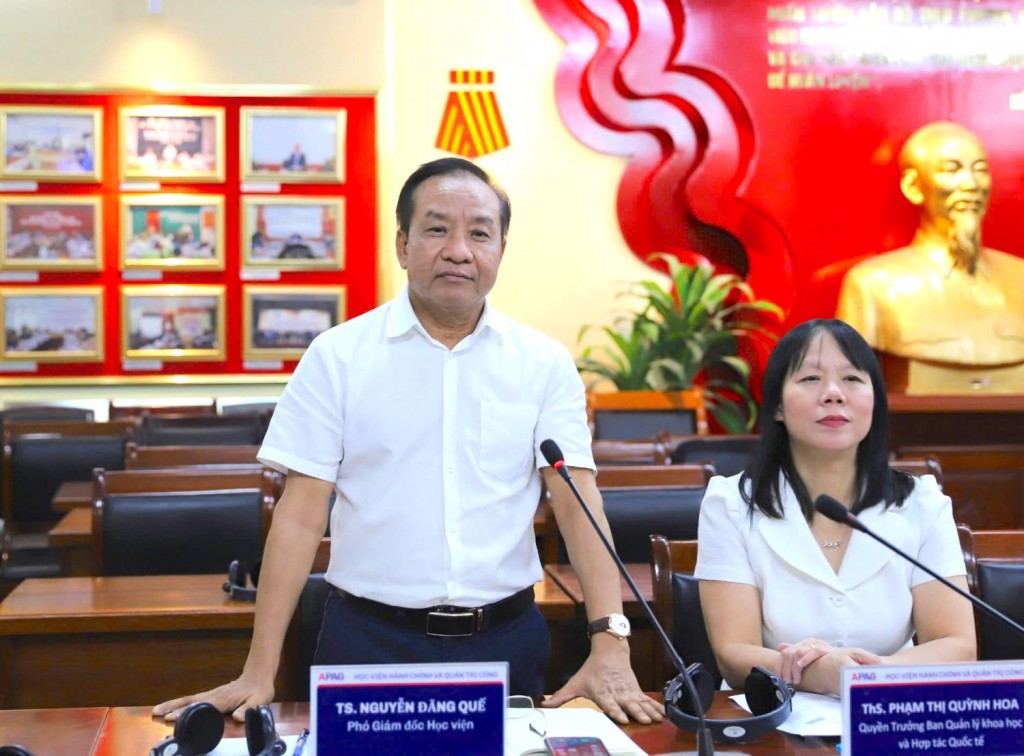
Dr. Nguyen Dang Que, Vice President of APAG.
Participants exchanged views and engaged in in-depth discussion during the second session of the workshop:
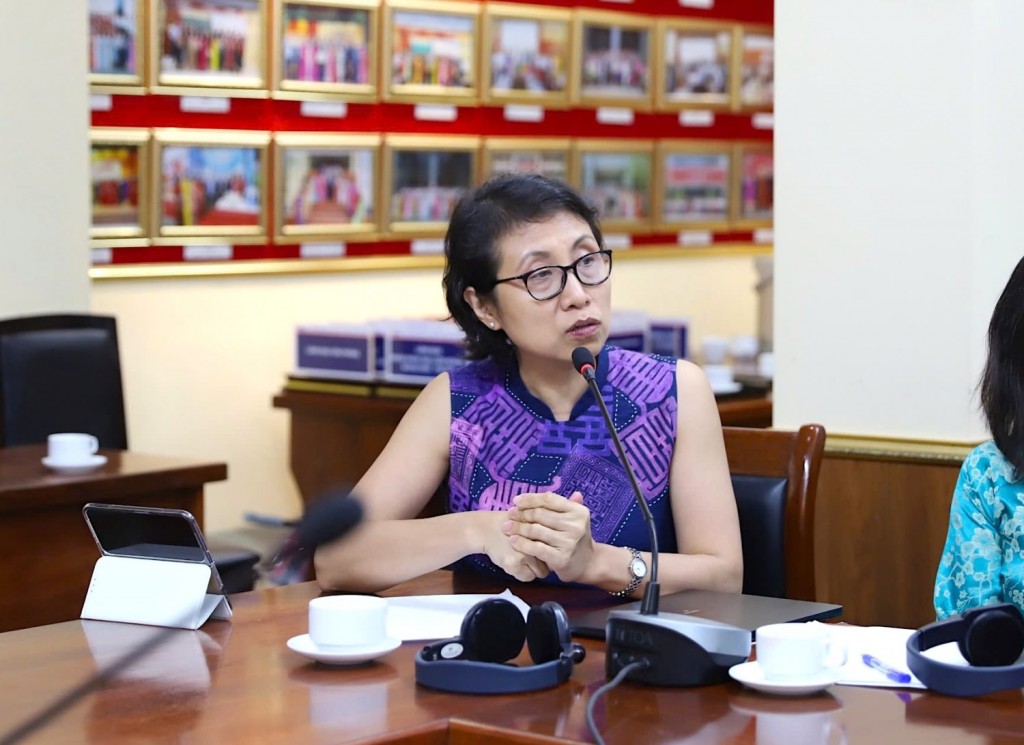
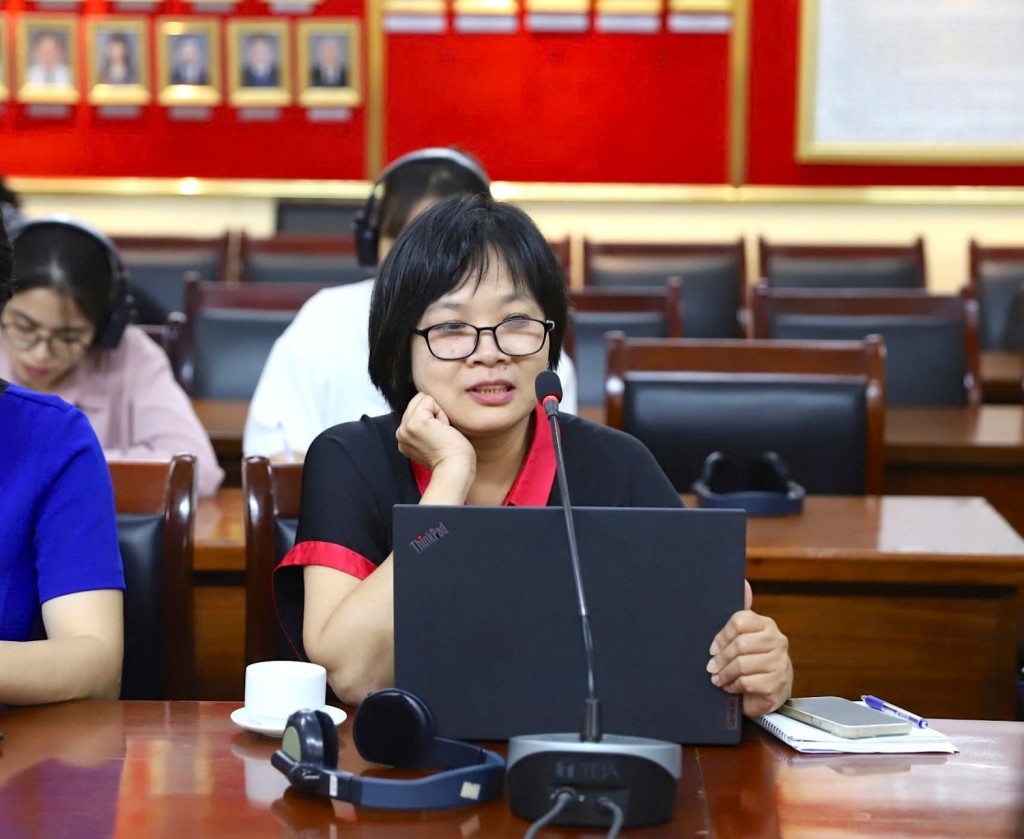
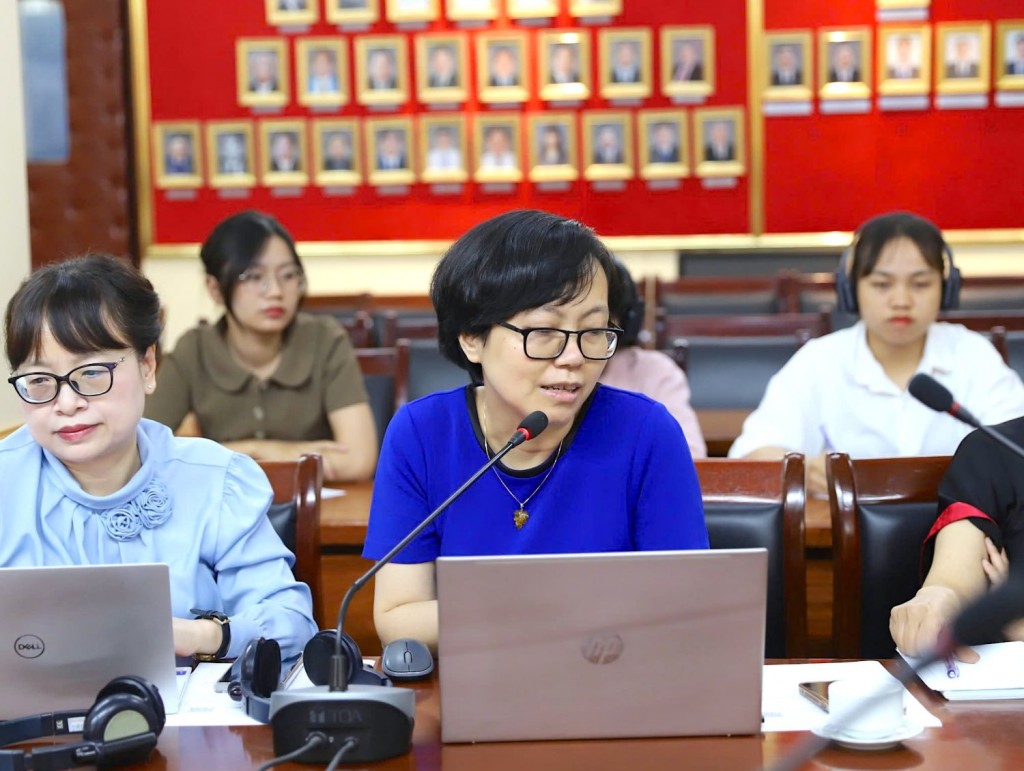
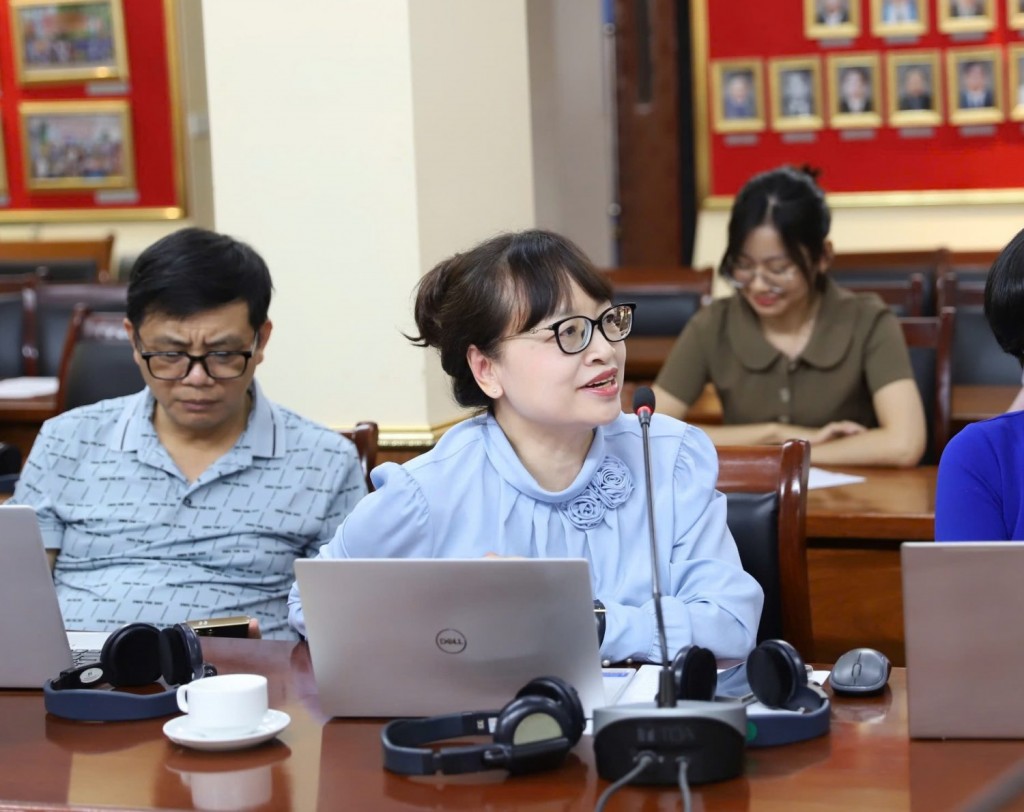
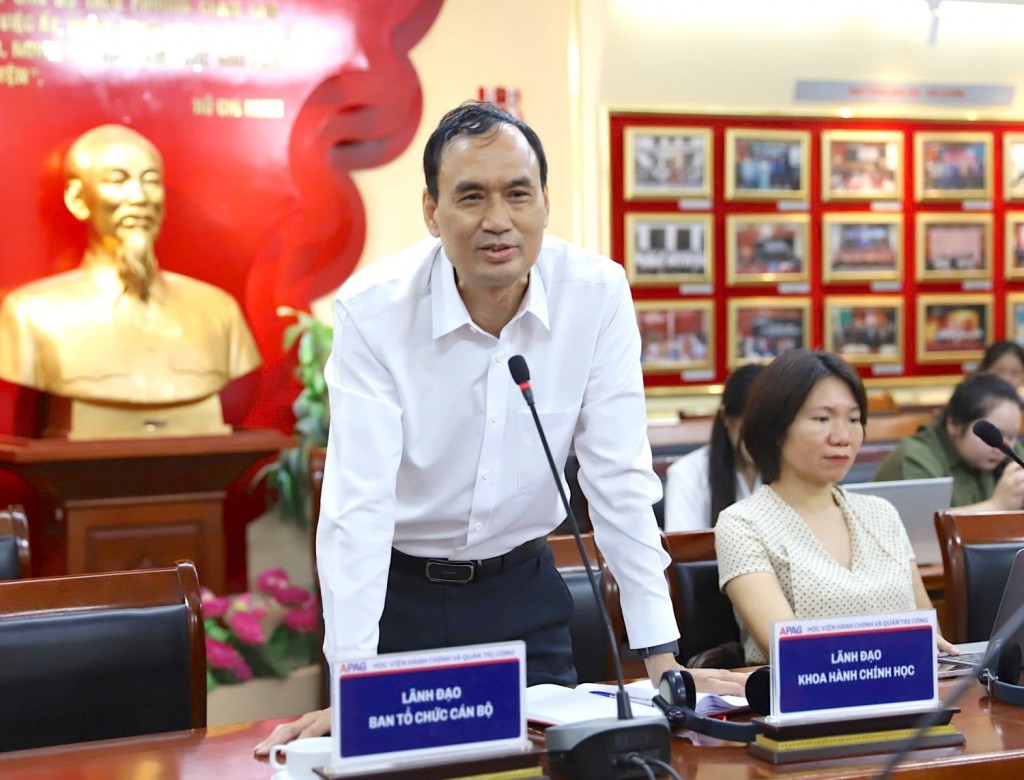
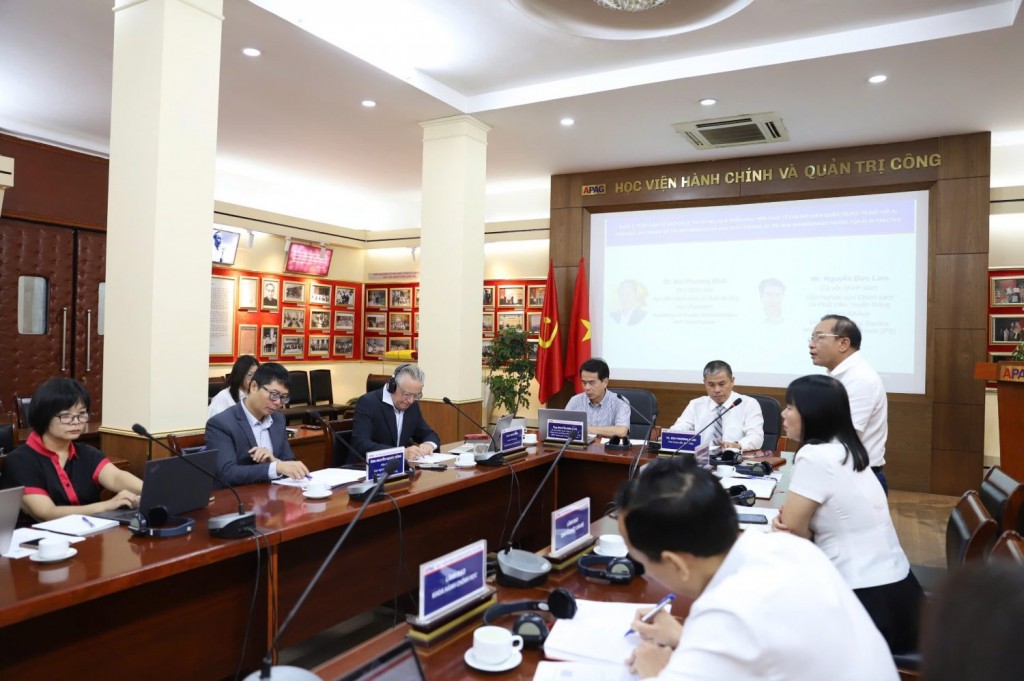
The workshop served as a valuable opportunity to connect policymakers, experts, and stakeholders in Viet Nam with international scholars, providing an open and academic platform to discuss AI governance. Through the workshop, participants reached consensus on the need for a cautious and balanced approach to AI, one that carefully weighs development and regulation, innovation and risk control, aiming to promote AI for human benefit and sustainable development.
The insights, recommendations, and shared experiences at the workshop not only helped clarify current AI governance models but also opened new directions for policy development and refinement in Viet Nam, drawing selectively from international, particularly EU, experiences.
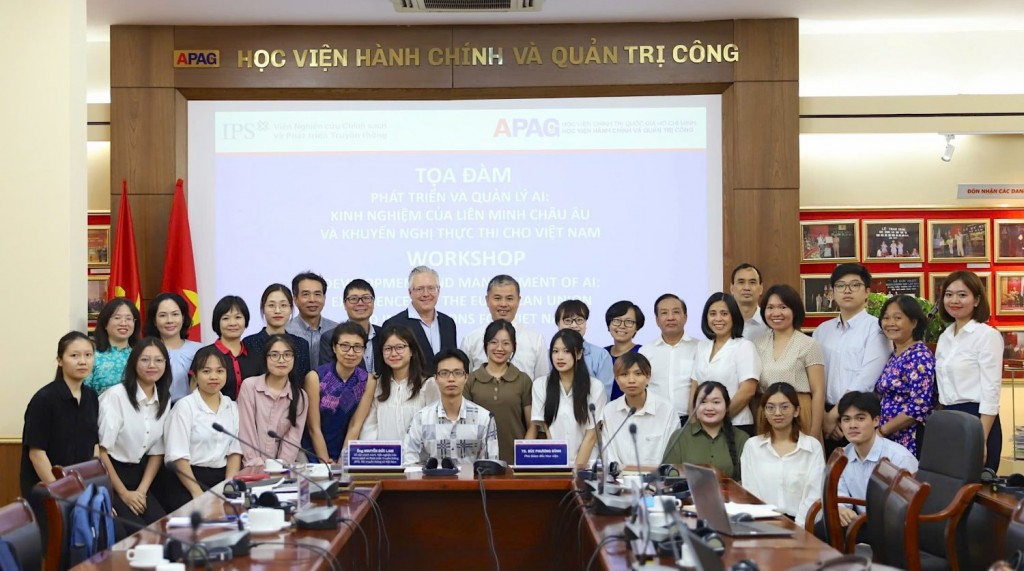
Workshop participants.